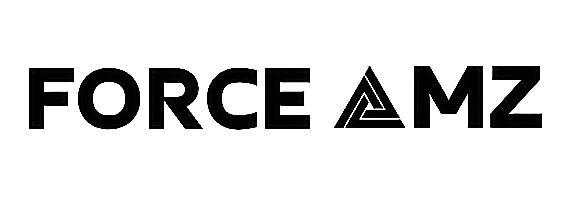Amazon Product Sourcing Strategies for FBA Businesses
In the ever-expanding world of e-commerce, mastering the art of product sourcing is essential for success. Whether you’re a seasoned Amazon seller or just venturing into the realm of FBA (Fulfillment by Amazon) business, understanding effective sourcing strategies can make all the difference. In this guide, we’ll explore the ins and outs of Amazon product sourcing, with a focus on leveraging Forceamz to streamline your operations and maximize profitability.
Understanding Amazon Product Sourcing
What is Amazon Product Sourcing?
Amazon product sourcing refers to the process of finding and acquiring products to sell on the Amazon marketplace. This involves identifying profitable products, sourcing them from suppliers or manufacturers, and listing them for sale on Amazon’s platform.
Importance of Product Sourcing
Effective product sourcing is crucial for FBA businesses, as it directly impacts profitability, inventory management, and customer satisfaction. By sourcing the right products at the right prices, sellers can maximize margins, minimize inventory costs, and attract a broader customer base.
Key Strategies for Amazon Product Sourcing
1. Market Research and Analysis
Before diving into product sourcing, it’s essential to conduct thorough market research to identify lucrative product categories, trends, and niches. Leverage tools like Jungle Scout, Helium 10, and AMZScout to analyze market demand, competition, and profitability metrics.
2. Supplier and Manufacturer Relationships
Building strong relationships with reliable suppliers and manufacturers is critical for successful product sourcing. Consider attending trade shows, networking events, and leveraging online platforms like Alibaba, ThomasNet, and Global Sources to connect with potential suppliers.
3. Private Labeling and Branding
Private labeling allows sellers to create their own brand identity by sourcing generic products from manufacturers and customizing them with their branding and packaging. This strategy offers greater control over product quality, pricing, and differentiation in the marketplace.
4. Online Arbitrage and Retail Arbitrage
Online arbitrage involves sourcing products from online retailers, wholesalers, or liquidation websites and reselling them on Amazon for a profit. Retail arbitrage, on the other hand, entails sourcing products from local retail stores, clearance sections, or thrift shops and selling them on Amazon.
Leveraging Forceamz for Amazon FBA Success
Introducing Forceamz
Forceamz is a comprehensive platform designed to empower Amazon sellers with powerful tools and insights to optimize their FBA businesses. From product research and sourcing to inventory management and repricing, Forceamz offers a suite of features to streamline operations and drive growth.
Key Features and Benefits
- Advanced Product Research: Utilize Forceamz’s product research tools to identify profitable products, analyze market trends, and uncover lucrative opportunities for sourcing.
- Inventory Management: Stay organized and efficient with Forceamz’s inventory management tools, track inventory levels, monitor sales performance, and automate reorder processes.
- Repricing Strategies: Optimize pricing strategies and stay competitive with Forceamz’s dynamic repricing algorithms, which adjust prices in real time based on market conditions and competitor pricing.
Conclusion
Mastering Amazon product sourcing is essential for FBA businesses looking to thrive in the competitive e-commerce landscape. By implementing effective sourcing strategies and leveraging tools like Forceamz, sellers can streamline operations, maximize profitability, and achieve long-term success in the world of Amazon FBA.
Forceamz is committed to providing valuable insights and resources to help Amazon sellers excel in their FBA businesses. Explore our blog for more articles and tips on Amazon product sourcing, FBA business strategies, and much more.
Frequently Asked Questions (FAQs)
- What is the difference between Amazon FBA and FBM?
- Amazon FBA (Fulfillment by Amazon) involves outsourcing order fulfillment to Amazon, where the company stores, picks, packs, and ships products on behalf of sellers. FBM (Fulfillment by Merchant), on the other hand, requires sellers to handle order fulfillment themselves.
- How can I find reliable suppliers for my Amazon FBA business?
- Utilize online marketplaces like Alibaba, ThomasNet, and Global Sources to connect with reputable suppliers and manufacturers. Attend trade shows, network with industry professionals, and conduct due diligence to vet potential suppliers.
- What are the benefits of using private labeling for Amazon FBA products?
- Private labeling allows sellers to create their own brand identity, differentiate their products from competitors, and build customer loyalty. It also provides greater control over product quality, pricing, and branding.
- How do I determine which products are profitable for sourcing on Amazon?
- Conduct thorough market research to identify high-demand product categories, analyze competition and pricing trends, and calculate potential profit margins. Leverage data-driven tools and software to assess market demand and profitability metrics.
- Is it possible to automate the Amazon product sourcing process?
- Yes, various software platforms like Forceamz offer automation tools and features to streamline product sourcing, inventory management, and repricing. These tools help sellers save time, reduce manual effort, and make data-driven decisions for their FBA businesses.
- What are some common pitfalls to avoid in Amazon product sourcing?
- Common pitfalls include poor market research, insufficient supplier vetting, overreliance on a single sourcing method, and failure to adapt to changing market conditions. Sellers should continuously monitor and adjust their sourcing strategies to stay competitive and profitable.








